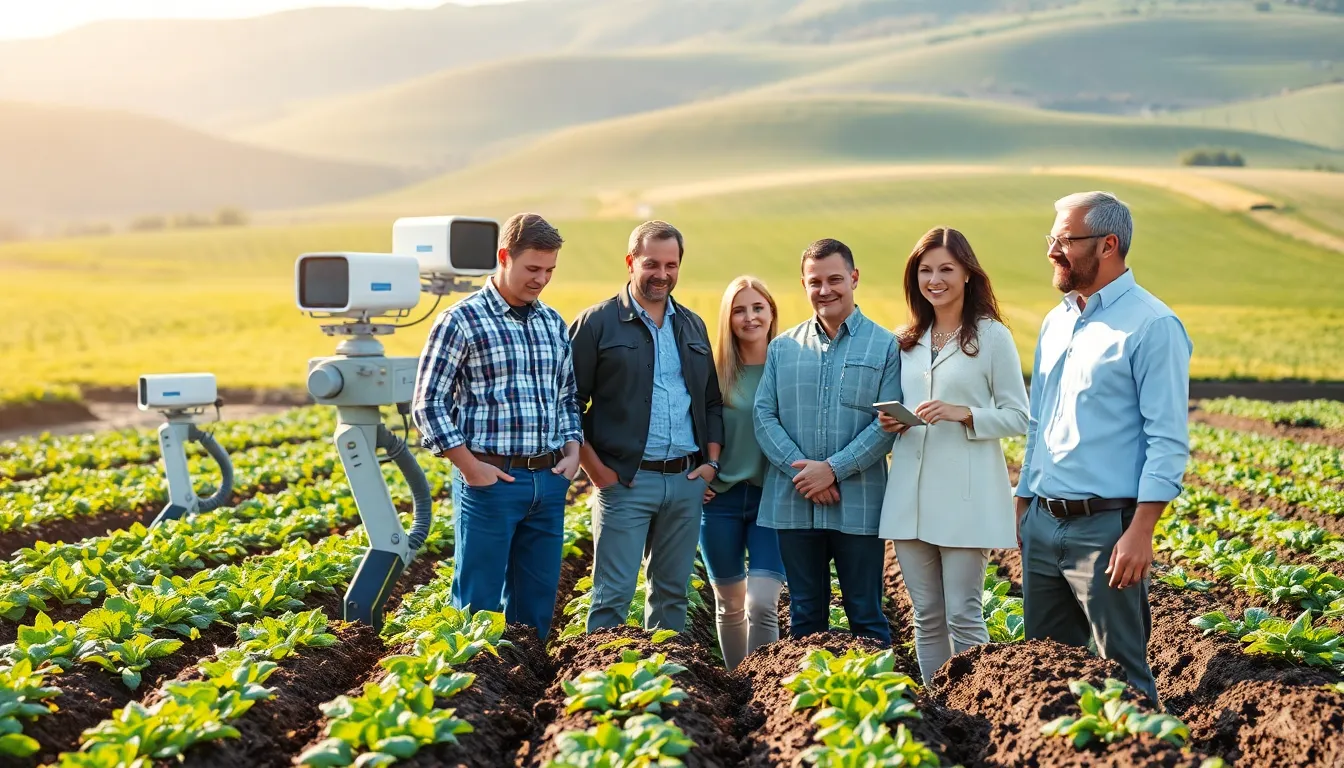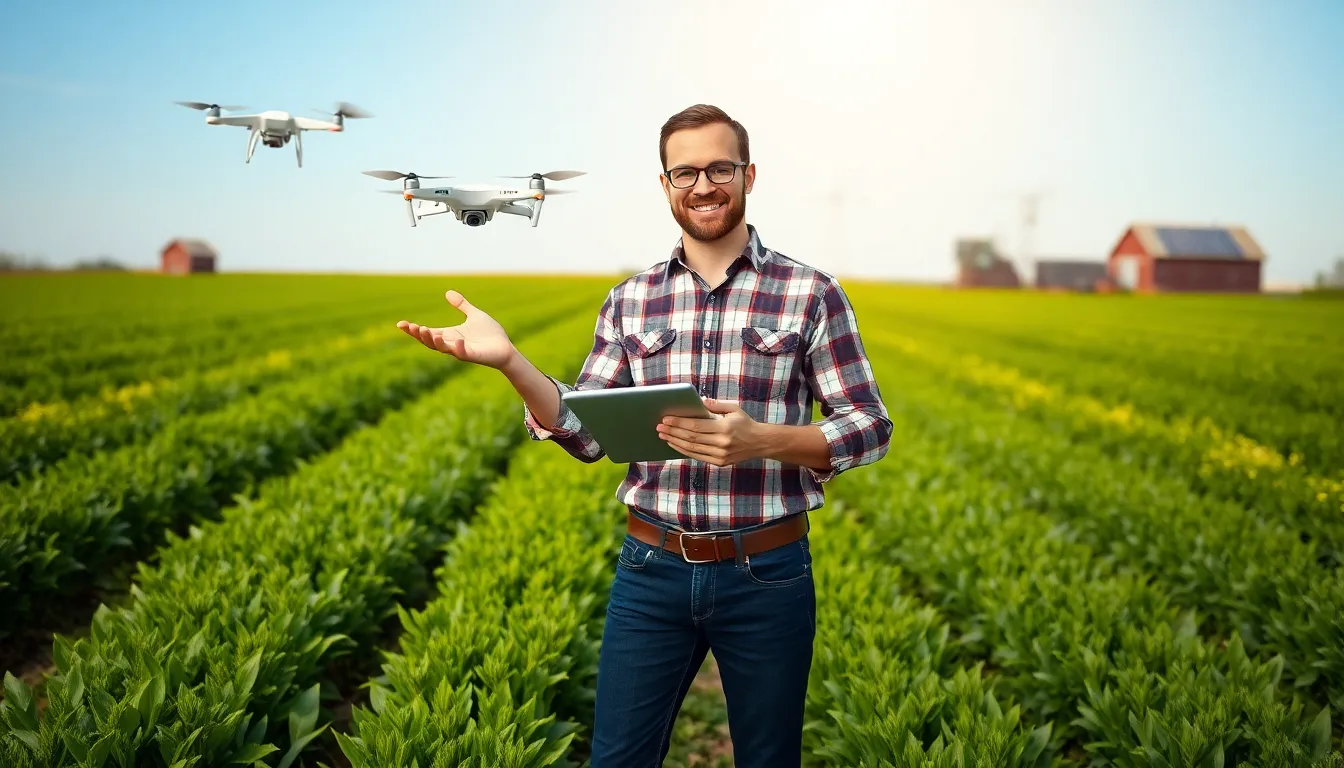When you think of agriculture, images of sprawling fields and tractors rumbling in the distance might come to mind. But what if I told you that the farmers of tomorrow are more likely to be coding than plowing? That’s right. Sustainable agriculture technology is reshaping how we think about food production, and it’s not just about reducing pesticides and fertilizers. It’s about revolutionizing the entire process in an eco-friendly way. In this text, we’ll explore this fascinating field, its significance, and the innovative tools making waves, all while tackling the challenges that could hitch a ride on this green-forward journey.
Table of Contents
ToggleOverview of Sustainable Agriculture Technology

Sustainable agriculture technology refers to the integration of innovative techniques and technologies to enhance agricultural productivity while minimizing environmental impact. Unlike traditional methods that often rely on high inputs of chemicals and fertilizers, sustainable approaches promote a symbiotic relationship between farming practices and natural ecosystems. This means using resources efficiently, maintaining soil health, and ensuring biodiversity. The primary goal is not just to increase crop yields, but to produce food in a way that is viable for both current and future generations.
Technologies falling under this umbrella include everything from advanced data analytics to robotic systems that help monitor crops in real-time. Each tool contributes to creating a resilient farming system that can adapt to changing climate conditions, potentially saving farmers time, effort, and resources.
Importance of Sustainable Agriculture
Why should anyone care about sustainable agriculture? Well, let’s break it down. As the global population continues to rise towards an expected 9.7 billion people by 2050, the demand for food is skyrocketing. Conventional agriculture is already stretched thin, leading to over-farmed lands and harmful practices that deplete our soil. Sustainable agriculture aims to close that gap, offering an alternative that both nourishes the planet and supports the burgeoning population.
Also, sustainable agriculture technology plays a crucial role in reducing agriculture’s carbon footprint. By employing methods that lower greenhouse gas emissions, as well as conserving water and promoting biodiversity, this approach aligns with global efforts to combat climate change. Picture it as turning down the thermostat on a bunch of overly heated greenhouses, necessary, timely, and essential.
Innovative Technologies in Sustainable Agriculture
Within the realm of sustainable agriculture, several innovative technologies are paving the way for smarter, greener farming practices.
Precision Agriculture and Its Impact
Precision agriculture is like having a GPS for farming. It employs satellite imagery, sensors, and data analytics to monitor crop health and optimize field-level management. Farmers can apply the correct amount of water, nutrients, and pesticides exactly where needed, rather than blanket applying products over entire fields. This method not only reduces waste but also improves crop yield, all while caring for our beloved planet.
Biotechnology in Crop Improvement
Biotechnology isn’t just for lab coats and petri dishes: it’s reshaping how we grow our food. Today’s genetic engineering techniques allow for the development of crops that can withstand harsh conditions, resist pests, and require fewer resources. Imagine a drought-resistant corn that flourishes in a tropical downpour or a pest-resistant soybean that needs no pesticides at all. These advances can lead to food security in areas that are currently struggling.
Renewable Energy Solutions in Farming
Farming today is beginning to leverage renewable energy sources to power operations. Solar panels on barn roofs, wind turbines on fields, or even biogas systems that convert organic waste into energy, these technologies help farmers lower their dependence on fossil fuels. They not only lower costs but also contribute to a more sustainable and eco-friendly agricultural system.
Challenges and Barriers to Adoption
Even though the advancements, there are several challenges farmers face when implementing sustainable agriculture technology. For one, high initial costs can deter many smallholder farmers from investing in modern tools. They may lack access to the financing necessary to adopt expensive precision farming technologies or genetic engineering methods.
Also, there’s the issue of knowledge and education. Many farmers might not be aware of the latest innovations or techniques available to them. Without proper training, even the best tools can fall flat. Also, regulatory hurdles can complicate the adoption of new technologies, especially in terms of genetically modified crops and environmental assessments.
Finally, traditional farming practices are deeply rooted in culture and community. Many individuals may resist change simply because it deviates from what they’ve always known. Overcoming these barriers requires not just technological innovation but also educational initiatives and support networks for farmers.
Future Trends in Sustainable Agriculture Technology
The future for sustainable agriculture technology is buzzing with exciting possibilities. One trend to watch is the rise of artificial intelligence (AI) in farming. With machine learning algorithms, farmers can predict crop behaviors, optimize irrigation schedules, and even detect diseases early, all with minimal input.
Also, the integration of the Internet of Things (IoT) is enhancing connectivity in farming. Smart devices in the field can relay data directly to farmers, allowing them to respond to issues quickly and accurately. The future may even feature autonomous tractors and drones that can autonomously manage fields, perform inspections, and collect data, freeing up farmers to focus on other tasks.
As consumer awareness of sustainable practices grows, there’s likely to be an uptick in demand for locally sourced and organic produce. This change in consumer behavior will compel more farmers to adopt sustainable techniques, as individuals increasingly favor products that care for the earth. All of these trends indicate a strong shift toward a sustainable future that balances food production with ecological health.



